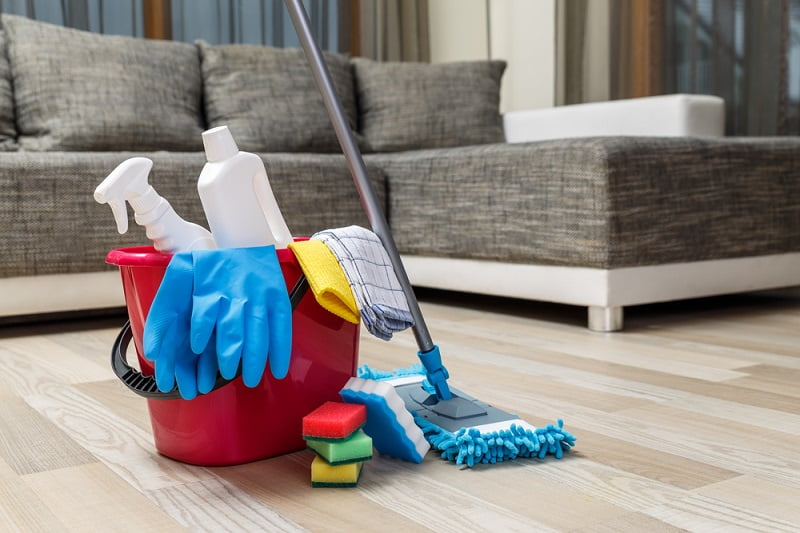Our homes and our workspaces should be safe places. But they can actually harbor all kinds of nasty germs and viruses that can cause us great harm. Your space can seem perfectly clean and inviting, yet nasties like mold or Methicillin-resistant Staphylococcus aureus bacteria (MRSA) can be hiding there, too small to see.
It’s important that you regularly disinfect your space to protect your health and the health of your guests. You don’t want to give your dinner guests a side of staph or your business clients a freebie of pneumonia. No one will want to come back!
Here’s what you can do to disinfect your home or office to prevent most types of infection:
Hire the Professionals
If you operate a business that is exposed to potentially dangerous infections or that works with vulnerable populations, you may need to hire professionals to clean and disinfect your space periodically. For example, if you operate an elder care facility or clinic, you will need to hire professionals for MRSA disinfection and for cleaning to reduce the risk of other contagious infections or diseases. These infections can spread so easily that it is important you get effective cleaning.
But you may need professional help in your home, as well. For example, you might not realize that some bed bugs are now carrying a drug-resistant strain of MRSA. So, if you have bed bugs in your home, you have more to worry about than getting rid of the pests, and you need more than the typical, over-the-counter removal methods.
Develop a Consistent Cleaning Schedule
You can keep your environment free of germs — or as free of germs as it can be without you spending all your time worrying about it — by simply developing a consistent cleaning schedule. That can include sweeping and mopping the floors once a week (more often if you have a business space open to clients), dusting shelves and blinds once a week (dust mites and other contaminants are lurking), and vacuuming your carpets every day (countless germs are hidden in those fibers). Your cleaning routine should also include regularly wiping down all surfaces with an eco friendly multi surface cleaner, or with bleach — preferably every day. That should include all doorknobs, sink faucets, water fountains, countertops, and anywhere else that hands touch. Wash your sheets once a week, and send your children’s toys through the wash with them. Wipe down any plastic toys with disinfectant or bleach.
Get into the habit of doing all this and more to keep your space clean and pleasant — and, most importantly, free of germs.
Use Protective Measures
Sometimes, the best way to keep a space germ-free is to make sure the germs don’t have a chance to get in. For example, you can keep your mattress protected with a special cover that keeps out bed bugs, dust mites, and more. You can do the same for your pillowcases. You can avoid cross-contamination in your kitchen by using disposable power towels or rags that you toss after use for things like cleaning up after raw meats, eggs, or even certain produce (E. coli outbreaks have been reported in spinach and other leafy greens).
Think carefully about the setup in your home and business to determine other ways that you can practice preventive measures to keep germs out or to minimize the risk of spreading them. If you aren’t sure about what you can do, hire a professional to guide you with their objectivity and experience.
Of course, you can also protect yourself against many infections by simply washing your hands often. At a minimum, you should wash them each time you use the bathroom and before each meal.
Germs are everywhere. Some of them do little more than cause minor discomfort and inconvenience, such as the common cold, but some can cause major, life-threatening infections, such as MRSA. It is important that you take all the steps you can to keep your home or your business free of as many germs as possible so that you remain healthy and safe. Practice good hygiene and maintain a regular cleaning schedule. Then call in the professionals for periodic cleanings or a more thorough disinfection for major threats.









